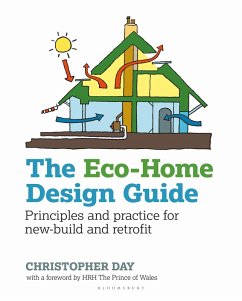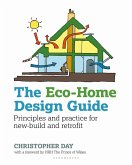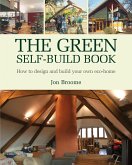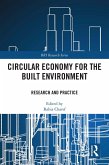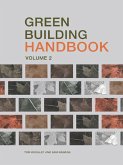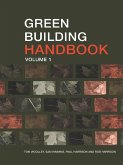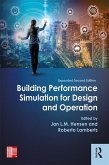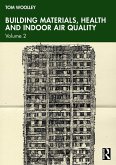The key principles of designing a pleasant, comfortable and healthy eco-home, with a foreword written by HRH The Prince of Wales, now King Charles III.
Designing an eco-home is much more about working with your house's location and situation than relying on intrusive technology and hi-tech materials. With the soaring energy bills and the climate crisis, it is now more important than ever to invest in a home that is considerate of keeping heat in.
In this handbook, architect Christopher Day draws on his extensive experience to explain the key principles of eco-home design, using common-sense methods. Packed full of practical information, it includes several case studies of eco-homes, reviewing (with hindsight) what worked well and what could have been better. There is also guidance on how to generate energy, upgrading old buildings, and site planning.
With beautifully hand-drawn illustrations, Christopher explores how to use local topography, combined with landscaping, to improve your home's microclimate and keep your house dry and warm in the winter, and cool in the summer. There are also handy tips on how to minimise hidden environmental impacts, and ideas on ways to make your home a safe and healthy place, both emotionally and physically.
The Eco-Home Design Guide is essential for anyone who wants to create a attractive, environmentally friendly home that is in harmony with its location.
Designing an eco-home is much more about working with your house's location and situation than relying on intrusive technology and hi-tech materials. With the soaring energy bills and the climate crisis, it is now more important than ever to invest in a home that is considerate of keeping heat in.
In this handbook, architect Christopher Day draws on his extensive experience to explain the key principles of eco-home design, using common-sense methods. Packed full of practical information, it includes several case studies of eco-homes, reviewing (with hindsight) what worked well and what could have been better. There is also guidance on how to generate energy, upgrading old buildings, and site planning.
With beautifully hand-drawn illustrations, Christopher explores how to use local topography, combined with landscaping, to improve your home's microclimate and keep your house dry and warm in the winter, and cool in the summer. There are also handy tips on how to minimise hidden environmental impacts, and ideas on ways to make your home a safe and healthy place, both emotionally and physically.
The Eco-Home Design Guide is essential for anyone who wants to create a attractive, environmentally friendly home that is in harmony with its location.

